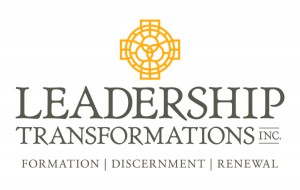Work Matters: Tradesman or Gardener?
I recently framed two of my favorite photos of my father and my maternal grandfather at work, and placed them on a shelf in my office to enjoy. My dad worked for the US Air Force as a civilian, in the role of mechanical engineer. He helped architect and construct large satellite dishes for the government for over 30 years. My grandfather worked for over 50 years at the Baltimore Sun newspaper as a type-setter. Both men were very proud of their work and would tell us great stories about their daily routines. I have many fond memories, and have sought to emulate their respective work ethics. They were men of their word and filled with integrity, hard workers, faithful employees, and committed to excellence in all they accomplished.
Interestingly, both men were also very good gardeners. My dad always had a large garden in the backyard of our family home. He grew lots of vegetables and provided fresh goods for his family to consume during each harvest season. We also had large pear and apple trees which allowed my mother to learn how to bake and preserve them for family enjoyment. My grandfather was adept at pruning and growing beautiful rose bushes along the side of their home in Baltimore. In addition, he had a knack for growing enormous holly bushes on both sides of their detached garage. The front porch and perimeter garden were always full of both annual and perennial flowers, much to the delight of my grandmother and all of their neighbors.
Growing up as a young boy, I didn’t really distinguish between the work of gardening and the trades these two men were employed to fulfilled. They were almost one for me…and in many respects remain so even today. I’ve often wondered, were my father and grandfather destined to be tradesmen or gardeners? It’s an interesting question to ponder, and one that I’ve yet to adequately answer beyond the simple response, “Both!”
My father and grandfather were deeply devoted to their families, wanting to provide for them as best as possible. Each of these men grew up in very sub-standard economic settings; my grandfather on a small farm in rural Pennsylvania and my father in an Italian “ghetto” in Princeton, New Jersey. Both of them had to work hard for whatever material blessings they would enjoy. Both of them were willing to sacrifice, serve, and offer their loved ones a lifestyle that exceeded what they knew as children. I’m in awe of their generosity, diligence, faithfulness, and courage.
But, I still wonder, now aloud, if their primary “work” was in the trade they pursued, or more in the land they tilled for the sake of a garden either for vegetables or flowers. Which was their vocation and what one was their avocation? I suppose their vocation was the one that they invested the most time in per day all year long, and the one that brought home a paycheck at the end of a week of hard work. But, my memory of these two men is that their eyes lit up most when they shared the fruit of their labors in the gardens they were growing on their own personal properties.
Were my father and grandfather tradesman who also tilled soil? Or, were they gardeners who cleaned up well and gave time to their trades? I’m still intrigued by these questions!
How about for you? What is your vocation and avocation? What most excites you about the work you’ve been called to fulfill both on your “homestead” and in your “marketplace”? Your work matters, dear friend, and that work is what looks most like generous fruitfulness that arises from a life well lived. Consider today both your vocation and your avocation(s)…invite God to inform your heart and mind as it relates to that which most connotes your truest calling, passion, mission and vision.
Work Matters: Tradesman or Gardener? Read More »

